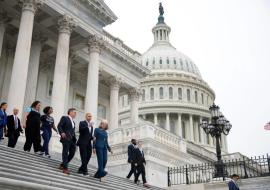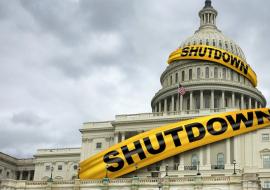Free Trade Deal between Central America, U.S. Held Back
Central American and US officials hoped the Central American Free Trade Agreement would take effect on January 1.
But none of the region´s countries have passed the necessary legal and regulatory reforms, delaying indefinitely the start date for the historic union that will tear down trade barriers between the United States, Central America and the Dominican Republic.
CAFTA proponents fear the delay will cause costly business and trade losses in a region that could use an economic boost.
“In Guatemala, we were planning on economic growth of 4.4 percent –the most robust of the region- thanks to CAFTA,” said Juan Carlos Paiz, president of the Guatemalan Union of Nontraditional Products.
But the delay is being hailed as good news by farm groups and others who have fought the agreement, arguing it will be a death-knell for small producers and other local businesses.
Stephen Norton, spokesman for the US Trade Representative´s office, said the Central American nations and the Dominican Republic must make “technical changes” in customs procedures, and regulations regarding intellectual property rights, telecommunications and procurement.
Honduras, El Salvador and Guatemala are aiming to meet the entry requirements by February 1. Nicaragua says it probably won´t join until March, while the Dominican Republic says it won´t be ready until July 1.
Costa Rica still hasn´t approved the pact, and may not even join at all. Lawmakers there aren´t scheduled to debate the topic until February at the earliest.
At issue are laws that strengthen intellectual property rights, an attempt to crack down on counterfeit and pirated goods, which flourish in Central America. Some countries must also formally eliminate tariffs and obstacles to investment.
Honduras has tackled most of the legal reforms, but President Ricardo Maduro must still approve a series of regulations needed to export agricultural products to the United States.














